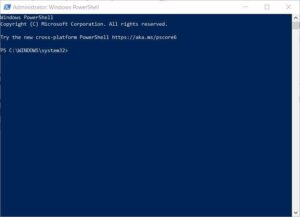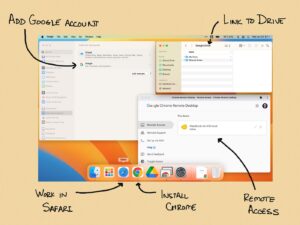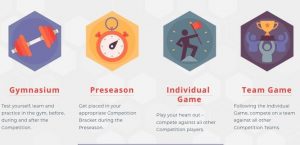A number of hackathons are pulling in tech experts to come up with solutions to pressing coronavirus-related problems.
Hackathons centered around COVID-19 have become all the rage over the past few months as dozens of technology companies look to crowdsource the world’s best solutions to pressing problems.
While healthcare-related ideas have dominated most of the hackathons, some have pulled in a variety of innovative tools to help solve economic and social issues related to the pandemic.
“As soon as we realized there was a pandemic going on, we wanted to do something in our little capacity to support people out there,” said CEO of HackerEarth Sachin Gupta. “There are a myriad of challenges that are coming up today because of the COVID-19 situation and we’ve got a community of millions of developers so we decided to spin up a hackathon.”
The company has held thousands of hackathons and began the hackCOVID event on April 1 with plans to end it on May 22. More than 3,500 teams signed up to tackle healthcare to more difficult problems facing local governments, small businesses, and shattered industries like travel or hospitality.
SEE: Coronavirus: Critical IT policies and tools every business needs (TechRepublic Premium)
Gupta said they have already received dozens of innovative, potentially viable ideas like apps that help people identify if they have unnoticed symptoms and token systems that stores can use to replace long lines.
“This is a social hackathon, so there aren’t any monetary rewards for the winners and we’re not going to be giving prizes. The best prizes you could get are for you to come up with a solution to ensure that the whole world can move better and live with the pandemic,” said Alfred Alexander, vice president of marketing at HackerEarth.
“Out of the more than 3,500 teams to sign up, there are people from over 40 countries, with a few in the US and the vast majority taking part from India, Sudan, Bangladesh, Algeria, and others.”
Alexander and Gupta said there were dozens of ideas related to self assessment tools and contact tracing to give people and governments a better way to track anyone they’ve interacted with in case they test positive for COVID-19.
Gupta explained that the company started seven years ago aiming to revamp the developer hiring process and they have held many hackathons over the years as a way to not just find talent but focus it on specific business or social problems.
Tons of developers who lack the fancy credentials of their peers now get a chance to prove their skill and Gupta added that in the past, the company has held hackathons for all kinds of companies in industries ranging from healthcare, to elevators and even diapers.
“A wide variety of industries today are applying technology to make their solutions smarter or more relevant or more efficient for their customers. This is also a great way to build out a talent pipeline,” Gupta said.
For Alexander, one of his favorite ideas was the store token solution called SimpleIQ. The app allows you to stand in a virtual line, giving you tokens doled out by a department store so that you can avoid being cramped into a physical queue.
The app gives you a number and once it’s your turn, you can just walk to the store from your home or car and get what you need instead of having to wait in line.
“I can relate to this here in India. Even while we were on lockdown, there were lines that were probably a 100 meters long, even with social distancing it was quite a huge queue so I would love to use that,” Alexander said.
HackerEarth is far from the only company holding a hackathon. In March, April, and May. Companies like Datavant, Postman and Databricks have all held events with high-profile partners to bring in the best ideas people have to offer.
Ryan Boyd, head of developer relations at Databricks, said its Hackathon for Social Good has received tons of COVID-19 submissions after organizing out some useful data sets. Databricks will accept submissions until June 12 and the winners will be announced on June 24.
People can sign up individually and join existing teams but Boyd said companies and groups of students have signed up together to work on specific projects. Both HackerEarth and Databricks set up Slack chats so team members can communicate easily and share ideas.
“I’ve run hackathons before online and in this format and it’s really been a great way to bring the community together. We truly believe that data scientists, data engineers visualization folks can work together with data and help address some of these issues. It’s not going to be the end-all solution of course, but it can address and highlight things that are happening in either their local area or with COVID-19,” Boyd said.
“So we put together this hackathon where instead of traditional prizes where the winners make money for themselves, the winners actually get to direct donations to charities which are important to them. Our software really exists to unite data teams, to bring data teams together, to allow data engineers and scientists to collaborate and the hackathon is about that. It’s about enabling those teams to collaborate towards a positive mission.”
Also see

Image: Getty Images/iStockphoto
Source of Article




